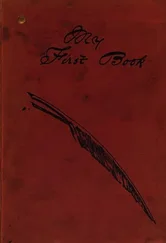Jerome Jerome - Novel Notes
Здесь есть возможность читать онлайн «Jerome Jerome - Novel Notes» весь текст электронной книги совершенно бесплатно (целиком полную версию без сокращений). В некоторых случаях можно слушать аудио, скачать через торрент в формате fb2 и присутствует краткое содержание. Жанр: Юмористическая проза, Классическая проза, на английском языке. Описание произведения, (предисловие) а так же отзывы посетителей доступны на портале библиотеки ЛибКат.
- Название:Novel Notes
- Автор:
- Жанр:
- Год:неизвестен
- ISBN:нет данных
- Рейтинг книги:5 / 5. Голосов: 1
-
Избранное:Добавить в избранное
- Отзывы:
-
Ваша оценка:
- 100
- 1
- 2
- 3
- 4
- 5
Novel Notes: краткое содержание, описание и аннотация
Предлагаем к чтению аннотацию, описание, краткое содержание или предисловие (зависит от того, что написал сам автор книги «Novel Notes»). Если вы не нашли необходимую информацию о книге — напишите в комментариях, мы постараемся отыскать её.
Novel Notes — читать онлайн бесплатно полную книгу (весь текст) целиком
Ниже представлен текст книги, разбитый по страницам. Система сохранения места последней прочитанной страницы, позволяет с удобством читать онлайн бесплатно книгу «Novel Notes», без необходимости каждый раз заново искать на чём Вы остановились. Поставьте закладку, и сможете в любой момент перейти на страницу, на которой закончили чтение.
Интервал:
Закладка:
"'Oh, you'll get over all that nonsense, Amenda,' she said, laughingly; 'you see yourself how silly it is. You must tell Mr. Bowles to keep you away from soldiers.'
"'Ah, I can't look at it in the same light way that you do, mum,' returned Amenda, somewhat reprovingly; 'a girl that can't see a bit of red marching down the street without wanting to rush out and follow it ain't fit to be anybody's wife. Why, I should be leaving the shop with nobody in it about twice a week, and he'd have to go the round of all the barracks in London, looking for me. I shall save up and get myself into a lunatic asylum, that's what I shall do.'
"Ethelbertha began to grow quite troubled. 'But surely this is something altogether new, Amenda,' she said; 'you must have often met soldiers when you've been out in London?'
"'Oh yes, one or two at a time, walking about anyhow, I can stand that all right. It's when there's a lot of them with a band that I lose my head.'
"'You don't know what it's like, mum,' she added, noticing Ethelbertha's puzzled expression; 'you've never had it. I only hope you never may.'
"We kept a careful watch over Amenda during the remainder of our stay at Folkestone, and an anxious time we had of it. Every day some regiment or other would march through the town, and at the first sound of its music Amenda would become restless and excited. The Pied Piper's reed could not have stirred the Hamelin children deeper than did those Sandgate bands the heart of our domestic. Fortunately, they generally passed early in the morning when we were indoors, but one day, returning home to lunch, we heard distant strains dying away upon the Hythe Road. We hurried in. Ethelbertha ran down into the kitchen; it was empty!―up into Amenda's bedroom; it was vacant! We called. There was no answer.
"'That miserable girl has gone off again,' said Ethelbertha. 'What a terrible misfortune it is for her. It's quite a disease.'
"Ethelbertha wanted me to go to Sandgate camp and inquire for her. I was sorry for the girl myself, but the picture of a young and innocent-looking man wandering about a complicated camp, inquiring for a lost domestic, presenting itself to my mind, I said that I'd rather not.
Ethelbertha thought me heartless, and said that if I would not go she would go herself. I replied that I thought one female member of my household was enough in that camp at a time, and requested her not to. Ethelbertha expressed her sense of my inhuman behaviour by haughtily declining to eat any lunch, and I expressed my sense of her unreasonableness by sweeping the whole meal into the grate, after which Ethelbertha suddenly developed exuberant affection for the cat (who didn't want anybody's love, but wanted to get under the grate after the lunch), and I became supernaturally absorbed in the day-before-yesterday's newspaper.
"In the afternoon, strolling out into the garden, I heard the faint cry of a female in distress. I listened attentively, and the cry was repeated. I thought it sounded like Amenda's voice, but where it came from I could not conceive. It drew nearer, however, as I approached the bottom of the garden, and at last I located it in a small wooden shed, used by the proprietor of the house as a dark-room for developing photographs.
"The door was locked. 'Is that you, Amenda?' I cried through the keyhole.
"'Yes, sir,' came back the muffled answer. 'Will you please let me out? you'll find the key on the ground near the door.'
"I discovered it on the grass about a yard away, and released her. 'Who locked you in?' I asked.
"'I did, sir,' she replied; 'I locked myself in, and pushed the key out under the door. I had to do it, or I should have gone off with those beastly soldiers.'
"'I hope I haven't inconvenienced you, sir,' she added, stepping out; 'I left the lunch all laid.'"
Amenda's passion for soldiers was her one tribute to sentiment. Towards all others of the male sex she maintained an attitude of callous unsusceptibility, and her engagements with them (which were numerous) were entered into or abandoned on grounds so sordid as to seriously shock Ethelbertha.
When she came to us she was engaged to a pork butcher―with a milkman in reserve. For Amenda's sake we dealt with the man, but we never liked him, and we liked his pork still less. When, therefore, Amenda announced to us that her engagement with him was "off," and intimated that her feelings would in no way suffer by our going elsewhere for our bacon, we secretly rejoiced.
"I am confident you have done right, Amenda," said Ethelbertha; "you would never have been happy with that man."
"No, mum, I don't think I ever should," replied Amenda. "I don't see how any girl could as hadn't the digestion of an ostrich."
Ethelbertha looked puzzled. "But what has digestion got to do with it?" she asked.
"A pretty good deal, mum," answered Amenda, "when you're thinking of marrying a man as can't make a sausage fit to eat."
"But, surely," exclaimed Ethelbertha, "you don't mean to say you're breaking off the match because you don't like his sausages!"
"Well, I suppose that's what it comes to," agreed Amenda, unconcernedly.
"What an awful idea!" sighed poor Ethelbertha, after a long pause. "Do you think you ever really loved him?"
"Oh yes," said Amenda, "I loved him right enough, but it's no good loving a man that wants you to live on sausages that keep you awake all night."
"But does he want you to live on sausages?" persisted Ethelbertha.
"Oh, he doesn't say anything about it," explained Amenda; "but you know what it is, mum, when you marry a pork butcher; you're expected to eat what's left over. That's the mistake my poor cousin Eliza made. She married a muffin man. Of course, what he didn't sell they had to finish up themselves. Why, one winter, when he had a run of bad luck, they lived for two months on nothing but muffins. I never saw a girl so changed in all my life. One has to think of these things, you know."
But the most shamefully mercenary engagement that I think Amenda ever entered into, was one with a 'bus conductor. We were living in the north of London then, and she had a young man, a cheesemonger, who kept a shop in Lupus Street, Chelsea. He could not come up to her because of the shop, so once a week she used to go down to him. One did not ride ten miles for a penny in those days, and she found the fare from Holloway to Victoria and back a severe tax upon her purse. The same 'bus that took her down at six brought her back at ten. During the first journey the 'bus conductor stared at Amenda; during the second he talked to her, during the third he gave her a cocoanut, during the fourth he proposed to her, and was promptly accepted. After that, Amenda was enabled to visit her cheesemonger without expense.
He was a quaint character himself, this 'bus conductor. I often rode with him to Fleet Street. He knew me quite well (I suppose Amenda must have pointed me out to him), and would always ask me after her―aloud, before all the other passengers, which was trying―and give me messages to take back to her. Where women were concerned he had what is called "a way" with him, and from the extent and variety of his female acquaintance, and the evident tenderness with which the majority of them regarded him, I am inclined to hope that Amenda's desertion of him (which happened contemporaneously with her jilting of the cheesemonger) caused him less prolonged suffering than might otherwise have been the case.
He was a man from whom I derived a good deal of amusement one way and another. Thinking of him brings back to my mind a somewhat odd incident.
One afternoon, I jumped upon his 'bus in the Seven Sisters Road. An elderly Frenchman was the only other occupant of the vehicle. "You vil not forget me," the Frenchman was saying as I entered, "I desire Sharing Cross."
Читать дальшеИнтервал:
Закладка:
Похожие книги на «Novel Notes»
Представляем Вашему вниманию похожие книги на «Novel Notes» списком для выбора. Мы отобрали схожую по названию и смыслу литературу в надежде предоставить читателям больше вариантов отыскать новые, интересные, ещё непрочитанные произведения.
Обсуждение, отзывы о книге «Novel Notes» и просто собственные мнения читателей. Оставьте ваши комментарии, напишите, что Вы думаете о произведении, его смысле или главных героях. Укажите что конкретно понравилось, а что нет, и почему Вы так считаете.











